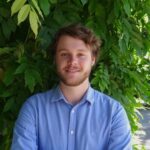The capacity-building program on water accounting in Lao PDR focuses on enhancing participants' understanding of the status of water resources in the Nam Ngum pilot basin and enabling them to quantify the fluxes using various tools, including remote sensing.
Increasing water scarcity continues to threaten the agricultural sector in Asia. To address this critical issue, FAO and its partners have been developing a comprehensive Asia-Pacific Water Scarcity Programme (WSP) since 2019. The program aims to assess the ongoing issue of water scarcity in the region, evaluate potential management options, and assist partner countries in implementing adaptive management in the agricultural water sector using innovative tools and approaches.
Addressing the issue of water scarcity requires a sound understanding and development of water accounts to ensure evidence-based decision-making for equitable use and allocation of water resources under a changing climate. To achieve this, a comprehensive hands-on training program on water accounting will be developed and implemented across four countries: Indonesia, Lao PDR, Vietnam, and Thailand. In collaboration with the Regional Office for Asia and the Pacific (RAP) of the Food and Agriculture Organization of the United Nations (FAO), FutureWater will design and deliver the water accounting training program. This program aims to not only improve participants’ understanding of water accounting but also enable them to use modern and innovative tools to develop water accounts, with a particular focus on quantifying linkages between field interventions and basin-scale hydrology.
Participants will work with tools such as REWAS and Follow the Water (developed by FutureWater in collaboration with FAO) to conduct water accounting in agricultural systems at different scales. Through the use of these tools, participants will be able to estimate real water savings at system and basin scales and analyze the impact of different irrigation schemes on the overall water availability in the system. Moreover, participants will also learn how to access and extract remotely sensed datasets to assess the status of the water resources in the Nam Ngum pilot basin.



